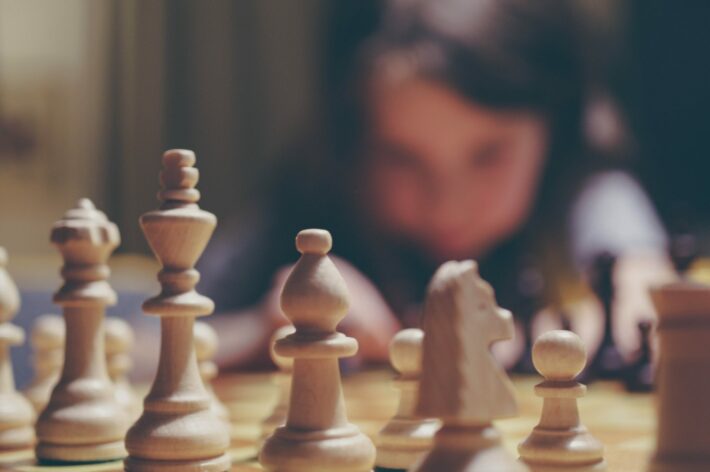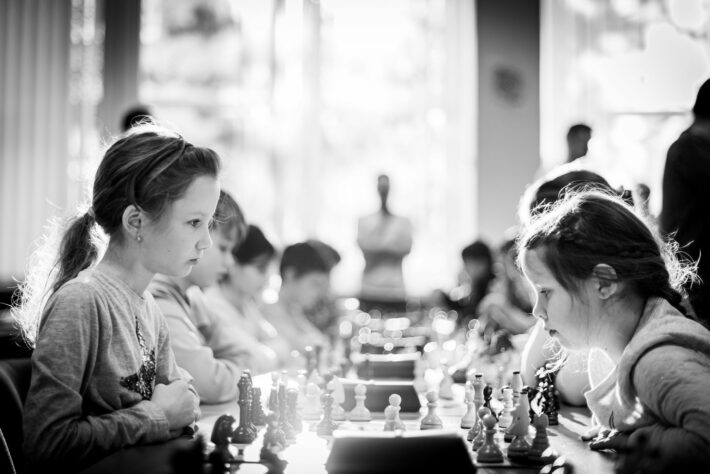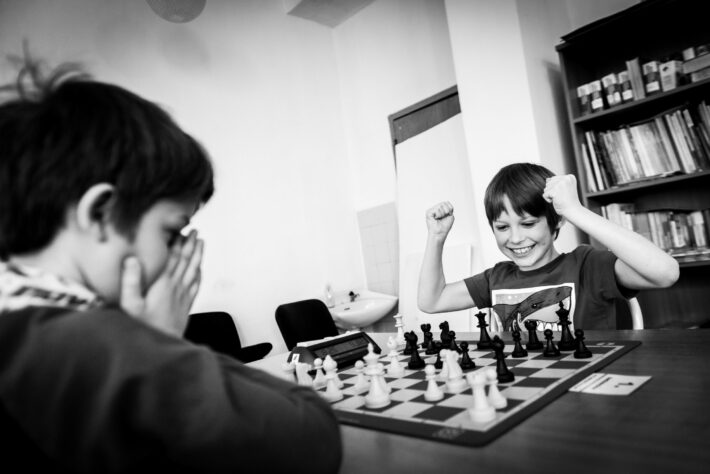Embark on a thrilling journey into the realm of chess as we unravel the essential rules, invaluable tips, and strategic tricks specifically designed for beginners. Whether you’re taking your first steps on the checkered board or seeking to enhance your gameplay, this comprehensive guide has got you covered.
From understanding the fundamental rules that govern each piece’s movement to gaining expert insights on effective strategies, this article equips you with the knowledge and tools to excel in the game. Prepare to elevate your chess skills and outmaneuver opponents with our insightful guidance. Let’s dive into the world of chess tactics and triumph!
What are the basic rules of chess for beginners?
Chess rules for beginners revolve around understanding the movements of each piece. Pawns advance one square forward, knights move in an L-shape, bishops diagonally rook vertically or horizontally, queens in any direction, and kings one square at a time.
The objective is to checkmate the opponent’s king. Special rules include castling to safeguard the king, en passant capturing, and pawn promotion. Knowing how to properly set up the board, the order of play, and the value of each piece is crucial for beginners to grasp.
How can new players learn the rules of chess quickly?

To learn chess rules quickly, new players have various resources at their disposal. Online tutorials and video lessons offer step-by-step explanations. Local chess clubs provide opportunities for in-person guidance.
Interactive chess apps allow practice against computer opponents or beginners. Utilizing chess books and websites that explain rules concisely and offer examples helps accelerate learning. By combining these methods, new players can grasp the rules efficiently and start playing confidently.
What are some essential tips for beginners starting in chess?
Beginners starting in chess should prioritize key principles. Emphasize piece development by bringing out knights and bishops early. Control the center of the board to maximize influence. Safeguard the king by castling and connecting rooks.
Learn tactical concepts such as pins, forks, and skewers to exploit opponent weaknesses. Focus on piece coordination and efficient exchanges. Study endgame basics like king and pawn checkmating techniques. By internalizing these fundamental tips, beginners can establish a solid foundation for their chess journey.
What are the common mistakes beginners make in chess and how to avoid them?
Common mistakes beginners make in chess include neglecting piece development, moving the queen prematurely, failing to consider opponent moves, and overlooking tactical threats. Avoid these errors by emphasizing fundamentals: develop pieces harmoniously, control the center, and safeguard the king.
Make moves with purpose, considering both your plan and the opponent’s potential responses. Think ahead to anticipate tactics and threats. Analyze completed games to identify weaknesses, learn from mistakes, and improve decision-making abilities.
How can beginners improve their chess strategy?
Beginners can enhance their chess strategy through active learning. Studying classic games played by grandmasters helps develop strategic thinking. Analyze and understand positional concepts, including pawn structures, piece activity, and king safety. Practice long-term planning and learn how to evaluate imbalances on the board.
Develop an intuition for piece coordination, prophylaxis (preventing opponent’s plans), and exploiting weaknesses. By studying strategy-focused resources and applying these concepts during gameplay, beginners can sharpen their strategic skills and gain an edge over opponents.
What are some effective opening moves for novice chess players?
Novice players benefit from starting with solid opening moves that prioritize key principles. The Italian Game, featuring moves like 1.e4 e5 2.Nf3 Nc6 3.Bc4, emphasizes control of the center and rapid piece development. The Spanish Opening, characterized by 1.e4 e5 2.Nf3 Nc6 3.Bb5, aims to control the center and prepare castling.
The Queen’s Gambit, initiated by 1.d4 d5 2.c4, focuses on controlling the center and pawn structure. By familiarizing themselves with these opening setups, novice players can establish a strong foundation for their games and ensure a solid start.
How to develop a strong chess mindset as a beginner?
Developing a strong chess mindset as a beginner involves cultivating key mental traits. Practice patience and focus to carefully analyze positions and evaluate moves. Embrace a growth mindset, viewing losses as opportunities for learning and improvement. Develop resilience to bounce back from setbacks.
Cultivate a curiosity for exploring new strategies and ideas. Engage in regular study and practice sessions to enhance your chess knowledge and skills. By nurturing these mental attributes, beginners can strengthen their chess mindset and approach the game with confidence and determination.
What are some recommended resources for learning chess tactics?
Learning chess tactics requires studying from reliable resources. Chess books like “Winning Chess Tactics” by Yasser Seirawan and “1001 Chess Exercises for Beginners” by Franco Masetti offer comprehensive tactical training. Online platforms such as Chess.com and Chessable provide interactive courses and puzzles for tactical improvement.
Chess software like ChessBase and ChessTempo offer tactical training modules. Additionally, YouTube channels like Hanging Pawns and The Chess Website offers free video lessons on tactics. By utilizing these recommended resources, beginners can enhance their tactical awareness and sharpen their ability to spot opportunities on the board.
How can beginners improve their chess endgame skills?
Improving chess endgame skills requires focused practice. Begin by studying basic endgame principles, such as king and pawn endgames. Familiarize yourself with essential checkmating patterns, like king and rook against king, and king and queen against king. Solve endgame puzzles and analyze annotated endgame examples.
Additionally, studying endgame theory from books like “Silman’s Complete Endgame Course” by Jeremy Silman can provide valuable insights. By dedicating time to specific endgame study and actively applying the acquired knowledge in practice games, beginners can enhance their endgame skills and gain a crucial advantage in the later stages of the game.
What are some advanced chess tricks that beginners can learn?

Although beginners may not be ready for advanced chess tricks, there are some intermediate concepts worth exploring. Tactics like discovered attacks, double attacks, and zugzwang (forcing the opponent into a disadvantageous move) can be effective.
Endgame techniques like opposition (controlling key squares with kings) and triangulation (maneuvering to gain an advantageous position) can also be valuable. However, it’s essential for beginners to first master fundamental principles before delving into more advanced tricks. As their skills progress, they can gradually incorporate these advanced concepts into their gameplay.
How to spot and exploit weaknesses in your opponent’s chess game?
Spotting and exploiting weaknesses in an opponent’s chess game requires careful observation and strategic thinking. Analyze the opponent’s pawn structure, identifying isolated or backward pawns that can be targeted. Look for weak squares or holes in their position where you can place your pieces advantageously.
Exploit tactical opportunities, such as forks, pins, and skewers, that arise from positional weaknesses. Develop a strong sense of piece coordination to attack vulnerable targets. By keenly observing the opponent’s position and making calculated moves, beginners can effectively exploit weaknesses and gain a significant advantage.
How to effectively analyze and learn from your own chess games as a beginner?
Analyzing and learning from your own chess games is crucial for improvement. After playing a game, review it move by move, identifying critical moments and mistakes. Look for missed tactical opportunities or positional errors. Use chess software or online platforms to run computer evaluations and gain objective insights.
Seek feedback from stronger players or coaches to gain different perspectives. Study annotated games of strong players to learn from their decision-making. Maintain a game journal to record observations and lessons learned. By systematically analyzing and reflecting on your games, beginners can identify areas for improvement and make progress in their chess journey.
This table provides valuable information on key aspects to consider when analyzing and learning from your own chess games.
| Key Aspect | Importance | Actions |
|---|---|---|
| Mistakes and Blunders | High | Identify tactical errors and positional inaccuracies, and understand the reasons behind them. |
| Critical Moments | High | Analyze moves where the game took a decisive turn, and evaluate alternative choices. |
| Opponent’s Strategies | Medium | Study your opponent’s plans and ideas, and identify patterns and recurring themes. |
| Opening Choices | Medium | Assess the effectiveness of your opening moves, and explore alternative variations. |
| Time Management | Low | Review how you utilized your time during the game, and identify areas for improvement. |
What are some recommended strategies for playing against more experienced opponents as a beginner?
Playing against more experienced opponents as a beginner can be challenging but rewarding. Focus on solid opening choices that establish a sound position. Play with caution, prioritizing piece development and king safety. Look for opportunities to simplify the position and reach favorable endgames. Seek to create imbalances and unpredictable situations to unsettle the opponent.
Maintain a defensive mindset, anticipating threats and responding strategically. Stay resourceful and seize tactical opportunities that may arise. By adopting a resilient and calculated approach, beginners can make the most of the learning experience when facing stronger opponents.
How do handle time management in chess games for beginners?
Effective time management is essential in chess games for beginners. Begin by understanding time control and allocating your time wisely throughout the game. Prioritize moves that require deeper calculation, while making faster decisions for simpler positions. Avoid spending excessive time on every move to prevent time pressure.
Develop intuition and pattern recognition to speed up decision-making. Regularly practice timed games to improve your ability to make accurate moves under time constraints. By mastering time management skills, beginners can maintain control over the clock and make informed decisions within the given time limits.
What are some common chess puzzles or exercises that can help beginners sharpen their skills?

Chess puzzles and exercises are valuable tools for sharpening skills. Tactics puzzles, such as those found in books or on websites, train pattern recognition, and calculation. Endgame puzzles focus on checkmating or pawn promotion techniques. Positional exercises involve evaluating and making strategic plans for given positions.
Studying annotated games and solving puzzles from renowned players’ games improve overall understanding. Online platforms like Chess.com offer puzzle-solving features. By regularly engaging in these puzzles and exercises, beginners can enhance their chess visualization, calculation, and decision-making abilities, ultimately becoming stronger players.
To summarize
By familiarizing themselves with the basic rules of chess, new players can lay a solid foundation for their gameplay. Learning from experienced players, studying tactics and strategies, and practicing regularly is essential for improvement. Analyzing and reflecting on their own games allows beginners to identify weaknesses, learn from mistakes, and grow as players.
Additionally, developing a strong chess mindset, honing time management skills, and staying open to continuous learning are key elements for long-term success in chess. With dedication and perseverance, beginners can unlock their potential and enjoy the intellectually stimulating and captivating world of chess.




